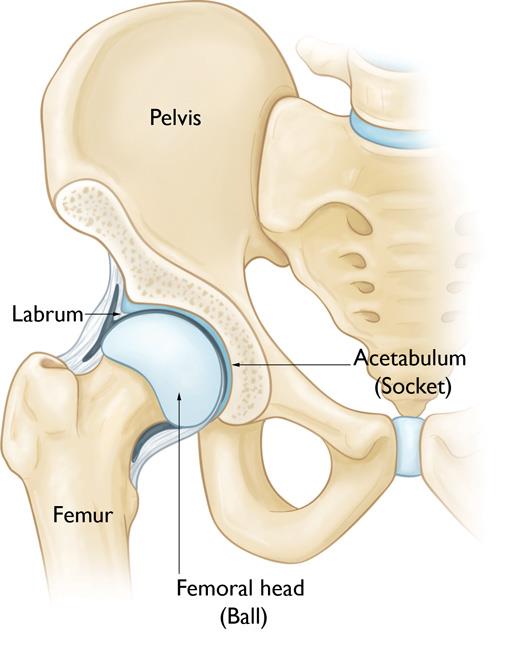Arthroscopy Hip Joint
India
-
Our Price USD 3510
-
Hospital Price USD 3900
-
You Save : USD 390
Booking Amount: USD 351. Pay Remaining 90% at the hospital.
Book NowAdditional Credit
Among the important extras we offer as part of the Additional Credit are the following:
-
Site Tourism For The Patient & Attendant
-
Airport Pick & Drop Service
-
Ambulance service at airport
-
Priority appointments with The Doctor
-
Cancel Easily Anytime with Full Refund
-
Room Upgradation
-
Free Online Doctor Consultation Valued at USD 20
-
Free hotel Stay for 5 to 7 days Accordingly
-
Welcome Kit at Arrival
-
Interpreter
-
Medical Visa Assistance
What is Included?
- Doctor consultation charges
- Lab tests and diagnostic charges
- Room charges inside hospital during the procedure
- Surgeon Fee
- Cost of implant
- Nursing charges
- Hospital surgery suite charges
- Anesthesia charges
- Routine medicines and routine consumables (bandages, dressings etc.)
- Food and Beverages inside hospital stay for patient and one attendant.
What is not Included?
- Extra Radiology Investigations
- Healthcare Professionals Charges of other consultations.
- Other Requested Services such as Laundry etc.
- Additional Pharmaceutical Products and Medicines After Discharge from Hospital.
- Management of Conditions Unrelated to Procedures or Pre-Existing.
- The cost of any additional implants will be in addition to the package cost.
Package Description
Arthroscopy Hip Joint:
Hip arthroscopy is a surgical treatment that allows surgeons to examine the hip joint without cutting the skin or other soft tissues. Arthroscopy is a procedure that is used to diagnose and treat a variety of hip disorders.
Hip arthroscopy is rarely regarded as a big procedure. The entire procedure usually takes less than two hours and only requires two or three skin incisions. Within a few weeks, patients will be able to bear weight on their hips. Because arthroscopy is non-invasive, it is frequently effective in addressing hip problems in patients.
Disease Overview:
Hip joint infection or Septic arthritis
When bacteria penetrate into the bone or joint and proliferate, it causes a hip infection. Infections can be caused by viruses, bacteria, fungus, and parasites. Bacteria are generally found on our skin. Infections of the bones and joints are most commonly caused by these bacteria. This is classified as Septic Arthrisis, which is a painful infection in a joint caused by bacteria that have travelled through your bloodstream from another region of your body. When a penetrating injury, such as an animal bite or trauma, transports bacteria directly into the joint, septic arthritis can develop.
Septic arthritis is more common in infants and the elderly. Septic arthritis is a problem for those who have prosthetic joints. Septic arthritis most usually affects the knees, but it can also affect the hips, shoulders, and other joints. The infection may swiftly and severely destroy the joint's cartilage and bone, so it's critical to get treatment as soon as possible.
Disease Signs and Symptoms:
Septic arthritis usually produces severe pain and makes it difficult to utilise the afflicted joint. You can have a fever and your joint is swollen, red, and heated.
Signs and symptoms such as slight pain and swelling may appear months or years after knee or hip replacement surgery if septic arthritis develops in an artificial joint (prosthetic joint infection). A loosening of the joint may also develop, resulting in discomfort while moving the joint or placing weight on it. When you're at rest, the ache usually goes away. The joint may become dislocated in severe situations.
Disease Casues:
Bacterial, viral, or fungal infections can all cause septic arthritis. The most prevalent cause is Staphylococcus aureus (staph) bacterial infection. Staph can be seen on even the healthiest skin.
When an infection, such as a skin infection or a urinary tract infection, travels via your bloodstream to a joint, septic arthritis can occur. A puncture wound, medication injection, or surgery in or near a joint — including joint replacement surgery — are all less typical ways for bacteria to get access to the joint region.
Your joint lining has little ability to protect itself from infection. The damage is exacerbated by your body's response to the infection, which includes inflammation that can raise pressure and limit blood flow within the joint.
Risk Factors
The following are some of the risk factors for septic arthritis:
- Joint difficulties that already exist. Septic arthritis can be triggered by chronic illnesses and ailments that affect your joints, such as osteoarthritis, gout, rheumatoid arthritis, or lupus, as well as past joint surgery and damage.
- Having a prosthetic joint. Bacteria can be introduced during joint replacement surgery, or bacteria might migrate from another part of the body through the circulation to infect an artificial joint.
- Taking rheumatoid arthritis medicines. Rheumatoid arthritis patients are at an even higher risk because they take drugs that decrease the immune system, making infections more likely. Septic arthritis is difficult to diagnose in persons with rheumatoid arthritis since many of the symptoms and indicators are similar.
- Fragility of the skin. Bacteria can gain access to your body through skin that breaks readily and heals poorly. Infected skin wounds, as well as skin diseases like psoriasis and eczema, raise your risk of septic arthritis. People who inject drugs on a regular basis are at a higher risk of infection at the injection site.
- Immune system is weakened. Septic arthritis is more common in people who have a weak immune system. This includes diabetics, those who have kidney or liver disorders, and those who are using immune-suppressing medications.
- Trauma to the joints. Septic arthritis can be caused by animal bites, puncture wounds, or incisions over a joint.
You are at greater risk if you have a mix of risk factors than if you only have one risk factor.
Disease Diagnosis
The tests listed below are commonly used to identify septic arthritis:
Fluid analysis of the joints. Infections can change the colour, consistency, volume, and chemical composition of the fluid in your joints. A needle can be used to extract a sample of this fluid from your damaged joint. Laboratory testing can identify the organism that is causing your illness, allowing your doctor to prescribe the appropriate drugs.
Tests on the blood. These can tell you whether you have an infection in your blood. A needle is used to extract a sample of your blood from a vein.
Imaging tests are performed. Damage to the joint or loosening of an artificial joint can be assessed using X-rays and other imaging examinations of the damaged joint.
If your doctor believes you have a prosthetic joint infection and it's been more than a year following surgery, a specialist scan that involves eating or injecting a tiny quantity of a radioactive substance may be performed.
Disease Treatment:
Septic arthritis is treated with joint drainage and antibacterial medications.
Drainage of the joints
It's critical to get rid of the contaminated joint fluid. The following are some examples of drainage methods:
Needle. Your doctor may be able to remove the contaminated fluid with a needle put into the joint space in some circumstances.
Procedure for determining the scope of work. A flexible tube with a video camera at its tip is inserted into your joint through a tiny incision in arthroscopy. Suction and drainage tubes are then placed into your joint using tiny incisions.
Open surgery is a type of surgery in which the patient is Some joints, such as the hip, are more difficult to drain using a needle or arthroscopy, necessitating an open surgical surgery.
Antibiotics
Your doctor must first identify the bacteria that is causing your infection in order to provide the most efficient treatment. Antibiotics are normally administered initially through a vein in your arm. You might be able to transition to oral antibiotics later.
Treatment typically lasts two to six weeks. Antibiotics can cause nausea, vomiting, and diarrhoea, among other things. Allergic responses are also possible. Inquire with your doctor about the possible adverse effects of your drug.
Replacement joint is removed.
When an artificial joint becomes infected, the best therapy is to remove it and temporarily replace it with a joint spacer, which is a device composed of antibiotic cement. A new replacement joint is placed some months later.
If a replacement joint cannot be removed, a doctor may clean it and remove any injured tissue while leaving the prosthetic joint in place. To prevent the infection from returning, intravenous antibiotics are followed by oral antibiotics for several months.
Information related to Treatment
Package Details
Days in Hospital
2 Days
Days in Hotel
*
10 Days
Room Type
Private
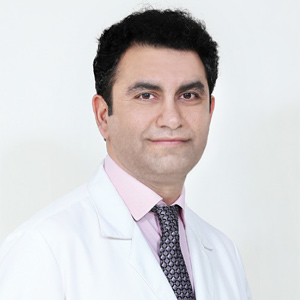
Treating Doctor
Dr. Bhushan Nariani
Orthopaedic Surgeon- Ankle surgery, Brachial plexus repair, Osteoarthritis, Avascular Necrosis of Hip Joint, Osteoarthritis (Most Common), Hip Fracture or Hip Dysplasia, Ankle Fracture, Deformed Knees, Meniscus Tear, Shoulder Arthritis, Torn Anterior, Osteonecrosis, Hip Osteoarthritis, Carpal Tunnel Syndrome Surgery, Hip/Ankle/Knee Injury, Rheumatic Arthritis, Injury or Fracture of the Hip Joint, Ankle Arthritis, Erb's Palsy, Bone Tumor in the Hip Joint, Brachial Plexus Avulsion, Shoulder Injury, Knee Osteoarthritis, Torn Rotator Cuff, Knee pain
BLK-Max Super Speciality Hospital New Delhi, India
18 Years of Experience
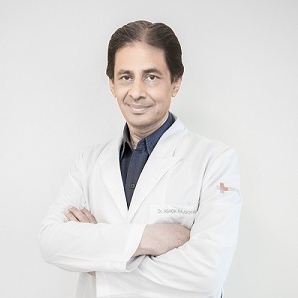
Treating Doctor
Dr. Ashok Rajgopal
Orthopaedic Surgeon- Joint Replacement Surgery, Knee Surgery, Anthroscopic Meniscus Surgery
Medanta-The Medicity, Gurgaon Gurgaon, India
42 Years of Experience
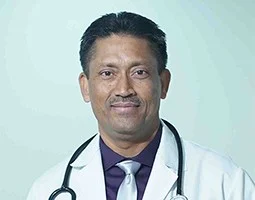
Treating Doctor
Dr. Yuvraj Kumar
Orthopaedic Surgeon- Spine Surgery, Trauma Surgery, Joint Replacement Surgery, Knee Replacement, Hip Replacement, Shoulder & Elbow Surgery, Joint Pain Treatment, Primary and Revision Knee & Hip Replacement, Hip Pain Treatment, Joint and Muscle Problems, Hip Arthroplasty, Joint Dislocation Treatment, Arthroscopy Procedure
Accord Super specialty Hospital Faridabad, India
24 Years of Experience
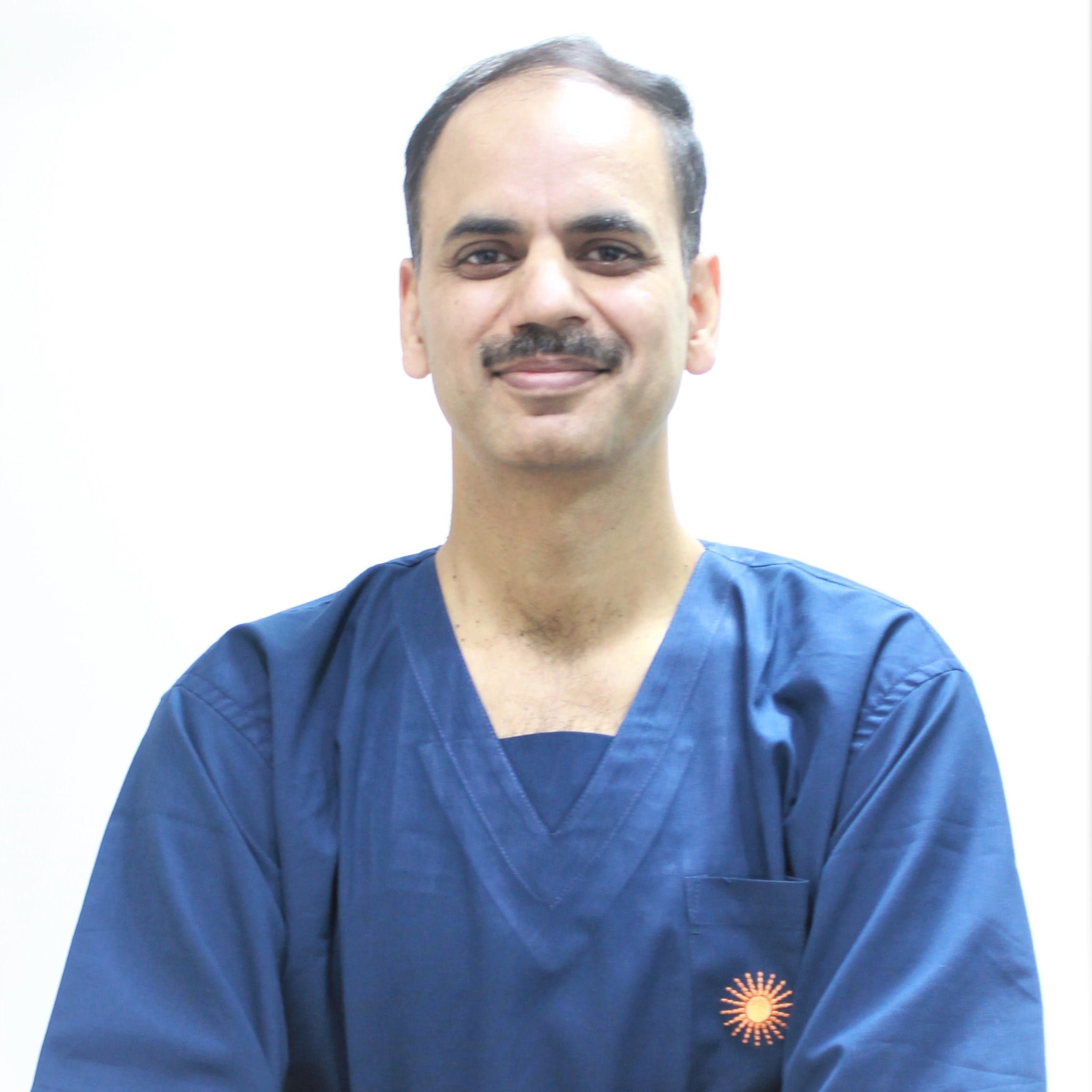
Treating Doctor
Dr. Sumit Batra
Orthopaedic Surgeon- Spine Surgery, Deformity correction, Spine fracture/ trauma, Disc Replacement ( Cervical /Lumber), Microdiscectomy, Knee Replacement, Total Knee Replacement, Total Hip Replacement, Complex Trauma Surgery Primary
Marengo Asia hospital, Faridabad Faridabad, India
24 Years of Experience
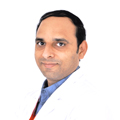
Treating Doctor
Dr. Vipin Tyagi
Orthopedist- Spinal Deformity correction, Correction of deformities, Spasticity, Joint Replacement Surgery, Wrist Problem, Reconstruction and Rehabilitation, Disc Slip, External Fixator, Reconstruction and Bone Lengthening, Cruciate Ligament Recosntruction
Medanta-The Medicity, Gurgaon Gurgaon, India
35 Years of Experience
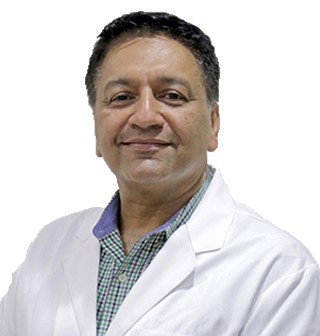
Treating Doctor
Dr. Nitiraj Oberoi
Orthopaedic Surgeon,Orthopaedic Surgeon- Ankle surgery, Joint Replacement Surgery, Complex Trauma Surgery Primary, Revision & Complex Joint Replacement, ACL/PCL Reconstruction, Arthroscopy of Knee, Shoulder Surgery, Sports Injuries Surgery
Fortis Escorts Heart Institute New Delhi, India
29 Years of Experience
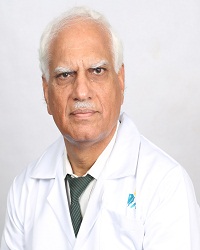
Treating Doctor
Dr. Vinod Sukhija
Orthopaedic Surgeon,Orthopaedic Surgeon- Knee Replacement, Hip Replacement, Arthroscopic Surgery, Knee Ligament Surgery (ACL), Knee Arthroscopy, Carpal Tunnel Syndrome Surgery, Arthrisis management, Shoulder Arthroscopy, Hip Arthroscopy, Rotator Cuff Surgery, Tennis or Golfer's Elbow treatment, Paget's Disease Treatment, Torn Meniscus treatment
Indraprastha Apollo Hospitals, New Delhi New Delhi, India
39 Years of Experience
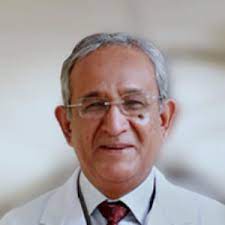
Treating Doctor
Dr. (Brig.) BK Singh
Orthopedist- Total Hip Replacement, Uni Condylar Knee Replacement, Resurfacing Hip Arthroplasty, Thrust plate prosthesis, Resurfacing shoulder Arthroplasty (Copeland), Total Ankle Replacement, Hip resurfacing with computer navigation, Minimally Invasive Knee Replacement Surgery, Acetabular fixation, Bilateral Hip Replacement, Both Knee simultaneous replacement, High Flex knee replacement, Robotic-arm assisted Total Hip Replacement (THR), Robotic-arm assisted Total Knee Replacement (TKR)
Artemis Hospitals Gurgaon, India
34 Years of Experience
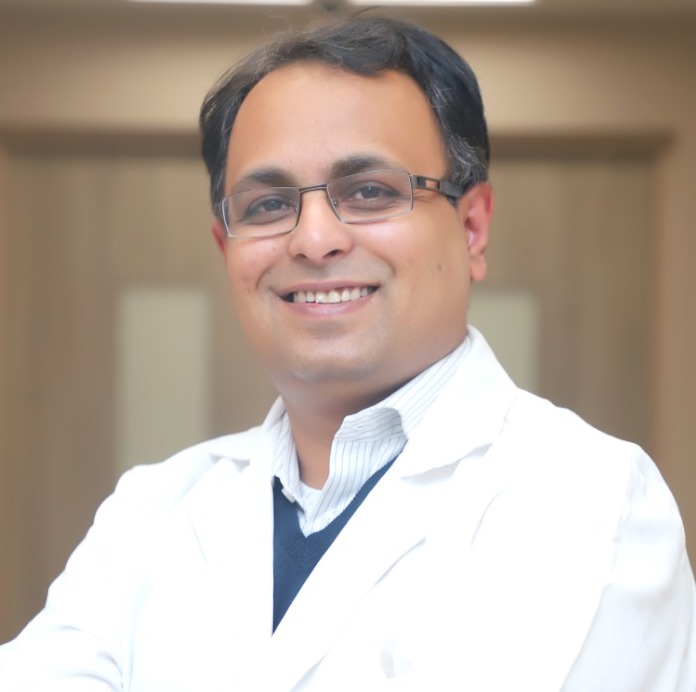
Treating Doctor
Dr Rohit Lamba
Orthopaedic Surgeon- Cerebral Palsy Surgeon, Osteoarthritis, Sports Injuries, Joint preservation procedures, Salvaging failed or infected joint replacements, Knee and shoulder arthroscopies, Complex joint replacement of hips and knees, Back pain, Ankle ligament injury, Achilles tendon, Tarsal Tunnel Syndrome, Musculoskeletal disorders, Menisus tear, Shoulder dislocation, Hallux Valgus deformity (Bunion), Cervical Spondylitis, Bone and joint deformities, Multiple joint pain, Arthritis, Joint disorders, Knee pain, Meniscus Tear, Club foot, Flat foot, Frozen shoulder, Developmental Dysplasia of the Hip (DDH), Metabolic bone disorders
CK Birla Hospital, Gurgaon Gurgaon, India
19 Years of Experience
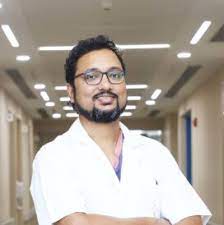
Treating Doctor
Dr Debashish Chanda
Orthopedist- Shoulder Replacement, Joint Replacement Surgery, Knee Replacement, Hip Replacement, Revision & Complex Joint Replacement, Wrist Problem, Total Elbow Replacement, Back pain, Ankle ligament injury, Achilles tendon, Tarsal Tunnel Syndrome, Metabolic bone disorders, Musculoskeletal disorders, Developmental Dysplasia of the Hip (DDH), Joint preservation surgeries, Arthroscopic surgery for ACL/PCL tear, Meniscus repairs and transplants, Cartilage microsurgeries, Chondrocyte transfer and chondroplasty, High tibial osteotomies, Realignment of limb, Joint disorders, Knee pain, Meniscus Tear, Club foot
CK Birla Hospital, Gurgaon Gurgaon, India
14 Years of Experience

